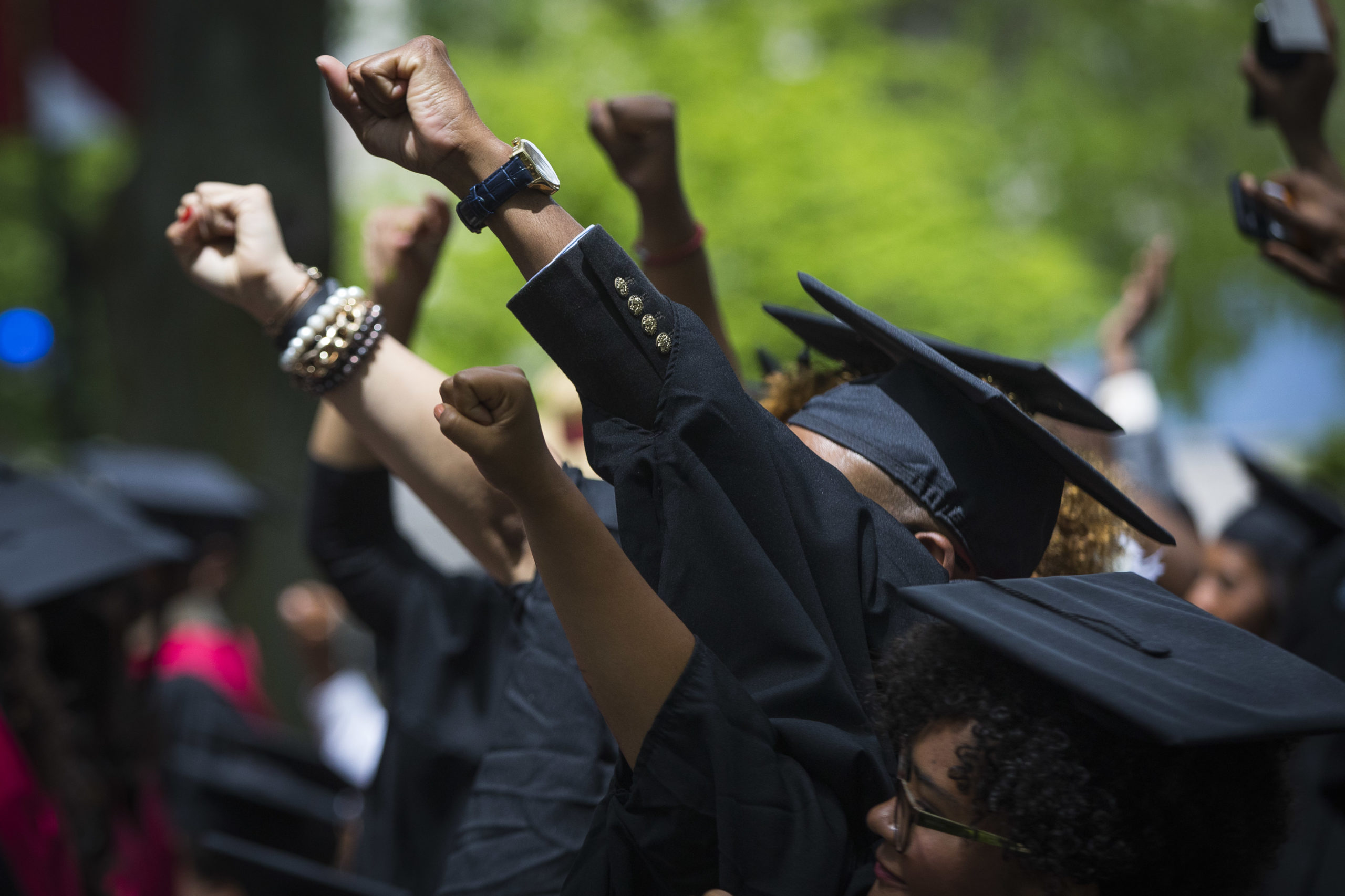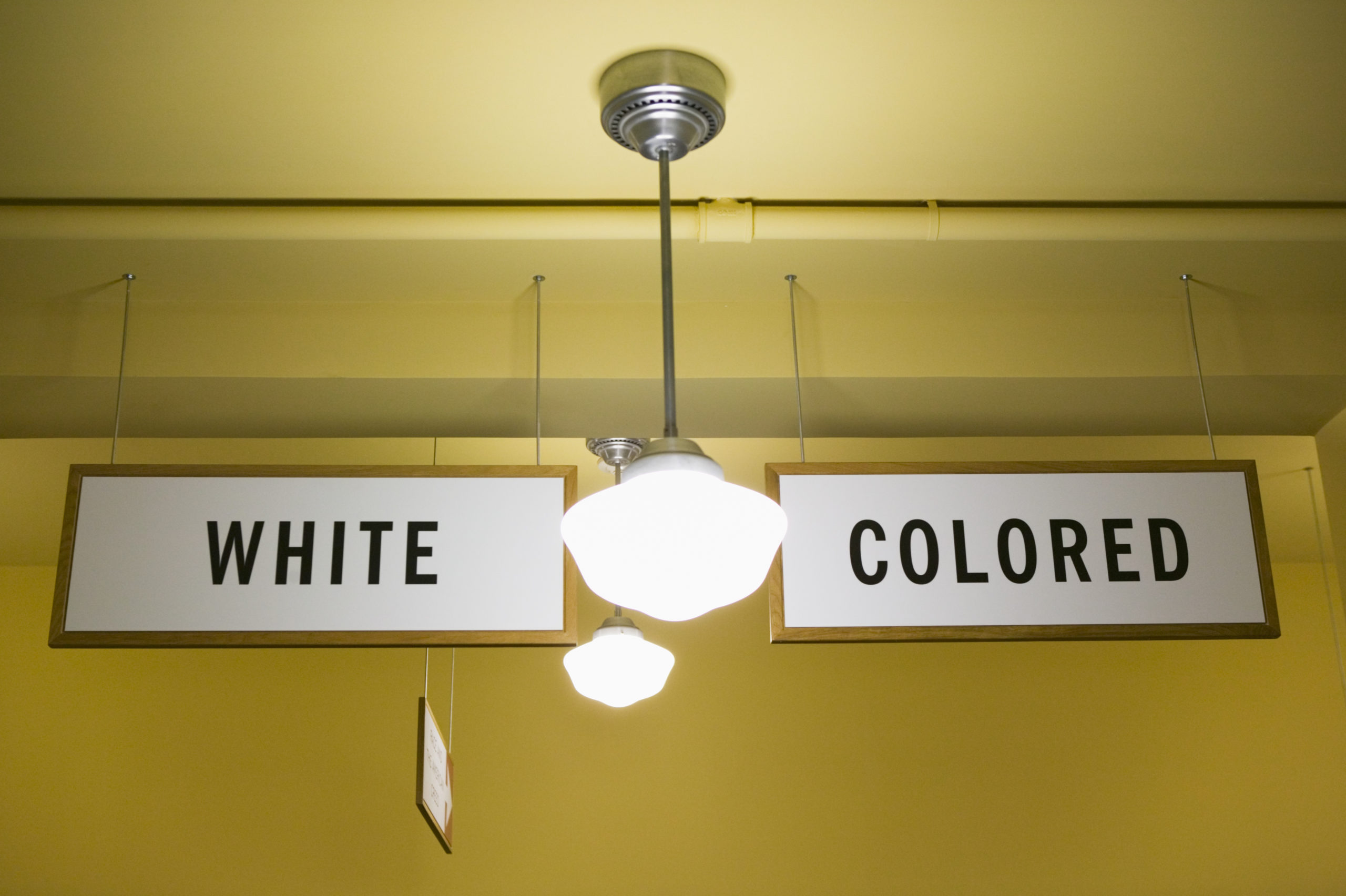On the perils of racial self-segregation.
The Metaversity Ate the University

The academy of broken brains.
Peter Wood’s essay provides two necessary and overdue contributions to understanding the madness that has gripped America’s college campuses—and by extension our ruling class: a forthright recognition of false political language and an account of the sociological origin of the Critical Race Theory movement. But while it is necessary to understand the faulty intellectual wiring that has been laid within the university, it is insufficient to explain the power surge that has short-circuited our public discourse and—it seems—essentially fried so many bright young brains.
A new force has emerged that deforms young minds before they ever arrive at university: the social internet. College campuses no longer shape young souls. Rather, colleges are being reshaped by the students. These students arrive with brains pre-wired to rebel against the university’s most basic cognitive demand: reflective contemplation.
The true roots of our societal obsession “with race” may owe less Derrick Bell and Kimberlé Crenshaw than it does to Facebook and Twitter. Our obsession “with gender” may owe less to Judith Butler and John Money than to Tumblr and TikTok. The woke ideas gestating for decades in academia have not suddenly swept through society because of their inherent strength, but rather because they are uniquely well-suited to shallow, impulsive minds. College is not more important now than ever. It is less. The university has become handmaiden to the metaversity.
Not So Nice
Allan Bloom’s canonical The Closing of the American Mind is largely remembered for its high-brow yet demotic exposition of how the American university became so committed to value-neutrality that it lost the ability to render a compelling account of its own value. By failing to present a clear value proposition, Bloom argued, universities were failing to educate—to draw students out from within themselves toward something higher. The American university lost its self-justification because it could provide no account of justice aside from a cheap, pseudo-Socratic “I don’t know.”
I read Bloom a little over a decade ago, when I was a senior at Yale, and his account of the campus climate still rang totally true. Everyone was—to use his word—nice. The only universally insisted-upon truth was that there was not necessarily any such thing as a universal truth. Few students were willing to vocally press any injustice-claim upon their peers.
But something has changed since I graduated. Bloom now seems out of date. Today’s students, by contrast, aren’t so “nice.” Many students fear speaking their mind, lest a swarm descend and attack them for an opinion that runs counter to “social justice.” Why did Bloom’s description of campus culture ring true in 1987 and in 2011, but not in 2022?
Four years after I graduated, I watched with horror as a young woman shrieked at Yale professor Nicholas Christakis. His offense: offering to engage in civil discourse to defend his wife’s position that Yale students were mature enough to pick Halloween costumes without guidance from a DEI bureaucrat. The shrieking girl was not the only one profoundly offended by this. Thousands of Yalies soon marched in solidarity with her.
My first thought was: “I did not go to college with kids like this.” To understand what had happened, I asked one of my wisest friends to explain it to me. His explanation: “They don’t seem like the same kind of people we went to Yale with because they aren’t the same type of people we went to Yale with. These are quite a different type of human being altogether. We are witnessing the coming of age of the first generation of children that socialized in high school with Facebook on their iPhones.”
Yale’s first African-American Dean of Students, Jonathan Holloway, came to a similar conclusion. After listening for hours to student grievances, he gave an interview to the New Yorker wherein he concluded that the root of the problem was not really “about race.” Rather:
This is not just a black problem or a brown problem or a women’s problem or whatever. We are seeing a generation of students, and I don’t know why, who do seem less resilient than in the past. I think part of it is that things aren’t mediated like they have been in the past. You don’t have the luxury of sitting down and pondering what somebody just said, because you’re too busy putting it into a Tweet and saying, “This is an outrage.” There’s no mediation of ideas.
Watch the video of the incident closely, and you’ll find young man in the background who affirms the girl’s shrieks by shouting “Retweet!” I didn’t know any girls like her, or guys like him, at Yale. I didn’t know that many Yalies who could be bothered to march in solidarity for anything, much less something so risibly infantile.
The hot takes written at the time reflected the old conventional wisdom: “What happens on campus will stay on campus,” and “they’ll grow out of it.” But I feared—correctly, as it turned out—that this time was different. Because what happened on campus wasn’t caused by the campus. The professors and administrators had not changed. The students had. They would not “grow out of it” because they had grown up within it. The university was not their formative cognitive-intellectual influence. Four years before arriving, they had already enrolled in a far more formative institution: the Metaversity.
Online Learning and Unlearning
The daft and facile ideology brewing in certain quarters of higher education for decades didn’t just bubble over into society. Rather, it provided a blueprint for a worldview uniquely well suited to what Nicholas Carr called “the shallows.” The “meta” social and intellectual apparatus erected by social media companies profits from viral outrage; it rewards thought-stopping epithets; it runs on mutually-misunderstood text messages. A shallow, status-panicked, influence-hungry ideology flowed seamlessly into a medium perfectly suited to amplify it.
After decades of repeating Bloom’s lamentation, it may be time for the Right to retire it. Because it’s no longer clear that the university still possesses the cultural power to serve as a formative institution. The Metaversity ate the university. The digital environments that children inhabit have more decisive power than college lecture halls to mold, expand, or limit their minds and souls.
In this, there is both cause for despair and hope.
Despair because digital media have the power to fully instantiate the democratic despotism that Tocqueville feared: “an innumerable crowd of like and equal men who revolve on themselves without repose, procuring the small and vulgar pleasures with which they fill their souls.” The soul-forming (or deforming) effect of having Facebook on your iPhone in high school is likely far less potent than the effect of having TikTok on your tablet before hitting puberty. And the vast “tutelary power” that Tocqueville feared seems to have figured out that the easiest “hack” to direct human affairs involves injecting and directing anxieties and neuroses.
But digital media also has the power to fulfill the decades-abandoned duty of the university: to educate. To draw young men and women out from within themselves toward something higher. Media figures like Joe Rogan and Jordan Peterson have gained such massive appeal in part because they serve a function that much of our traditional education system has largely abandoned. They provide room for long, deliberative discussion and examination of interesting phenomena for no political purpose—simply for the pleasure of satisfying curiosity.
Rogan attempts to direct his listeners and followers toward physical strength, mental discipline, and emotional stability. Peterson provides his listeners and followers with easy jumping-off points to explore the “best that has been thought and said.” As time goes on, more such “influencers” will emerge—and they will exert far more influence over the minds and souls of the next generation than the collective faculty of the Ivy League.
But children must be directed to good digital influencers by their primary human influencers—their parents. Undirected and unmonitored, digital media that appeals to the baser elements of the soul by means of cheap-yet-sophisticated intellectual tricks will naturally attract many still-developing young minds. For decades, parents have been obsessed with the question of what university their child should enroll in. But as more parents better realize the decisive power of digital media to shape their children’s minds and souls, they’ll realize that the more important question is when and how their children will enroll in the Metaversity—and how it will shape them.
Kids need mentors who understand the unique challenges they are facing—the challenges of an age in which their humanity is de-emphasized through digital immersion. By relying on wise and strong mentors rather than algorithms to guide them through the process of coming-of-age, they still have a chance to recover and strengthen a sense of themselves as embodied souls, not as recognition-contingent “identity” carriers.
Will these children grow up to revolve around themselves without repose, pursuing vulgar e-pleasures and barking in reaction to algorithmically manufactured outrage? Or will they find within it a greater array of resources and tools than offered in any university to maximize their human potential in the physical world?
The choice won’t really be up to children—it will be up to their parents.
The American Mind presents a range of perspectives. Views are writers’ own and do not necessarily represent those of The Claremont Institute.
The American Mind is a publication of the Claremont Institute, a non-profit 501(c)(3) organization, dedicated to restoring the principles of the American Founding to their rightful, preeminent authority in our national life. Interested in supporting our work? Gifts to the Claremont Institute are tax-deductible.
DEI and the religion of the favored caste.
The only “good amount” of race discrimination is none.
The diversity imperative has had a double character from the start.




